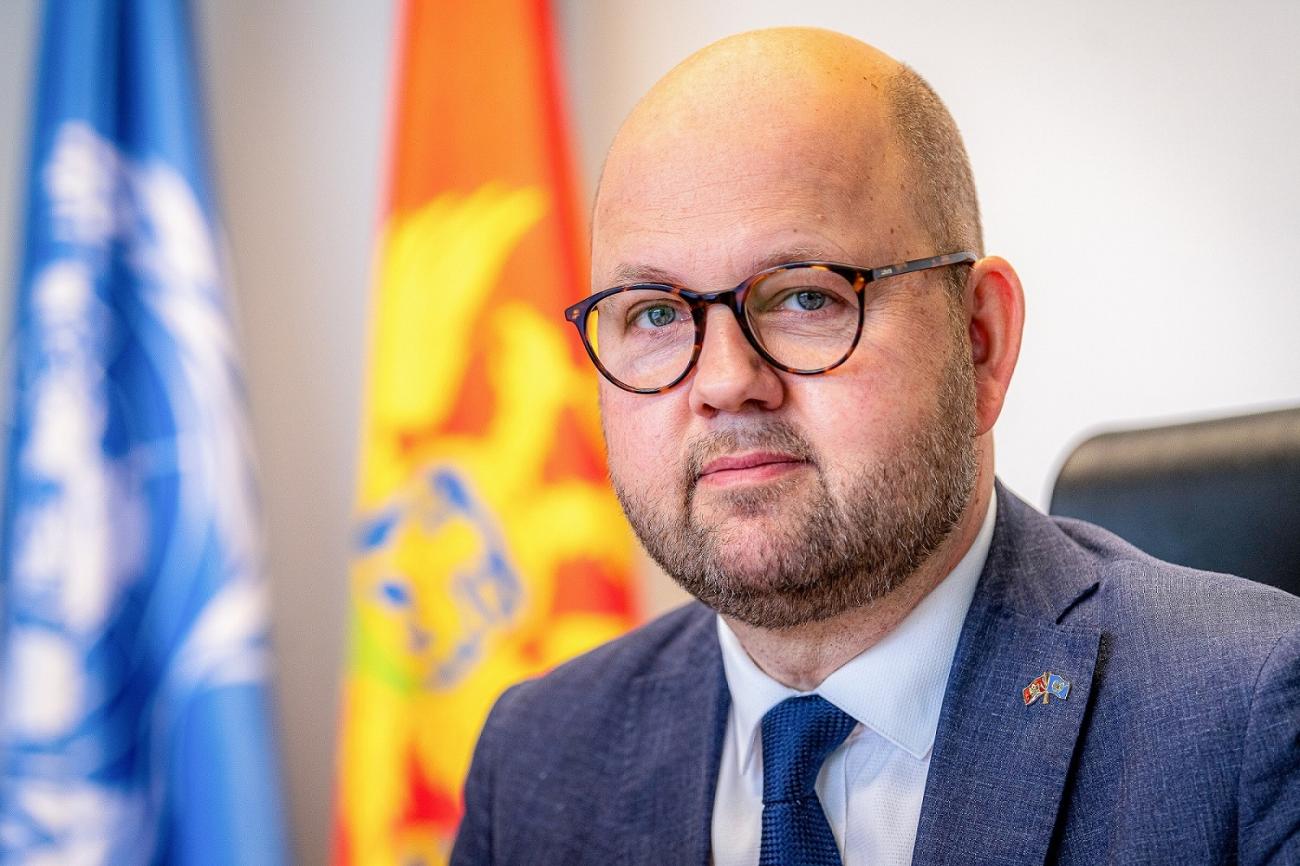Dealing with the past in Montenegro is essential for the present and the future

by Peter Lundberg, UN Resident Coordinator in Montenegro
21 September 2022
In May this year, for the first time since the war in the 1990s, a Government minister expressed support for erecting a memorial for the 66 victims, mostly Bosniaks, who were deported from Montenegro in 1992 and handed over to the Bosnian Serb army in Bosnia and Herzegovina. Most of them were killed shortly after. The police chief apologized to the victims’ families.
These were not the first steps Montenegro has taken to deal with the past. In 2000, the President apologized to the people of Dubrovnik for the attack on the city in 1991-1992. Families of victims of some war crimes have received financial compensation. The fate of some missing persons has been clarified, though the whereabouts of more than fifty persons from Montenegro remain unknown.
More recently, in October 2021, the Ministers of Foreign Affairs of Montenegro and Croatia jointly visited former Camp Morinj where Croatian prisoners of war and civilians were held in the 1990s. And, just a few days ago, together with their counterparts, a high-level delegation from Montenegro commemorated Vladimir Barović, a Yugoslav Admiral, who disobeyed a military order to shell cities in Dalmatia and who, in 1991, chose to sacrifice his life instead of, as he wrote, “waging war against the brotherly Croatian people”.
But more remains to be done.
Why is dealing with the past important?
Dealing with the past is critical for countries that in recent history have been affected by conflict, war crimes and gross human rights violations. It is complex and needs complementary actions to be effective. The United Nations has identified four processes and mechanisms to help societies come to terms with past conflict and human rights violations: (1) truth seeking; (2) accountability through prosecution; (3) reparation for victims; and (4) making sure that past violations do not happen again, also called the ‘guarantee of non-recurrence’. Non-recurrence often needs the strengthening of civil society, building strong and independent institutions that can promote social cohesion, preserving the memory of the past (archives, museums) and history education in schools, among other things.
In this way, dealing with the past can lead to sustainable development and long-lasting peace. Leaders have an important responsibility and are in a unique position to address the past for the benefit of all citizens and future generations.
Genocide denial and glorification of convicted war criminals
Addressing the past and building a peaceful future is impossible when judicially established facts are denied, distorted or relativized, and convicted war criminals are glorified. Regretfully, we have witnessed this around the world, in our region, and there are examples in Montenegro too. Positively though, Montenegro’s Parliament adopted the Council of Europe Resolution on Srebrenica in July 2009, reinforcing its stance by adopting in July 2021 another resolution strongly condemning the Srebrenica genocide and all crimes committed in the wars in the former Yugoslavia. It calls on the authorities to use existing legal measures to address genocide denial and relativization. It also condemns any attempt to attribute collective responsibility or guilt on a people or nation for such crimes. The UN Secretary-General’s Special Adviser on the Prevention of Genocide commended the Parliament calling the resolution a model for the region.
Further actions to address the past
Montenegro should strengthen efforts to address its recent past in four specific areas, and
- Accelerate reform of the prosecution and judiciary, to ensure judicial processes are independent and impartial for justice to be done. This will show that no-one is above the law, increase trust in institutions and foster stronger social cohesion.
- Echoing recommendations by the UN Committee Against Torture which had a dialogue with the Government in April this year, Montenegro should intensify ongoing efforts in war crimes investigations, investigate all allegations of serious international crimes, hold perpetrators accountable and ensure that all victims get redress and compensation. Until today, no-one has been tried in Montenegro’s courts as a commander on the basis of command responsibility, co-perpetration, aiding or abetting, for atrocities in the 1990s. The European Commission has consistently noted this in the past ten years when assessing progress towards Chapter 23 of the European Union acquis, related to handling of domestic war crimes cases.
- The country should swiftly amend the criminal procedure to allow the use of evidence which was presented before the International Criminal Tribunal for the Former Yugoslavia, in Montenegro’s judicial system. This would facilitate proceedings on a file Montenegro received from the International Residual Mechanism for Criminal Tribunals in The Hague in late 2020 on persons in Montenegro who may have been involved in war crimes in the 1990s.
- The Parliament should fulfil its commitment to ensure the sustainability of the Information and Documentation Centre (now operated by the Youth Initiative for Human Rights), formally handed over to Parliament in 2021. It is a key place in Montenegro that preserves and shares memories of the wars of the 1990s and an important place for education. As the UN Special Rapporteur on the promotion of truth, justice, reparation and guarantees of non-recurrence has said, “without the memory of the past, there can be no right to truth, justice, reparation, or guarantees of non-recurrence”.
UN’s position
The UN recognizes that any transitional justice process, in Montenegro or elsewhere, needs to be context-specific, nationally owned, and use a victim-centred approach. All relevant stakeholders, particularly women, youth and minorities, should be fully included and meaningfully participate in these processes. As we commemorate the International Day of Peace, the United Nations in Montenegro reaffirms its commitment to support Montenegro as it moves towards fulfilling the 2030 Agenda.


